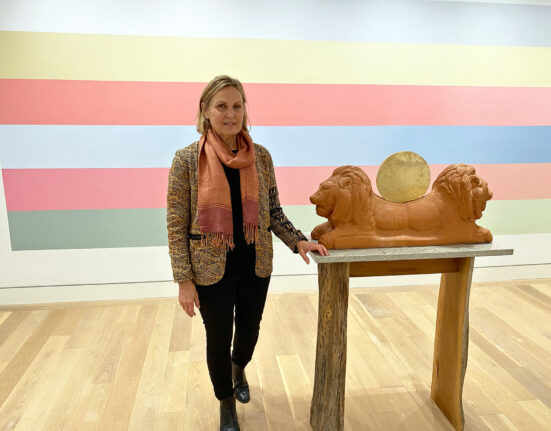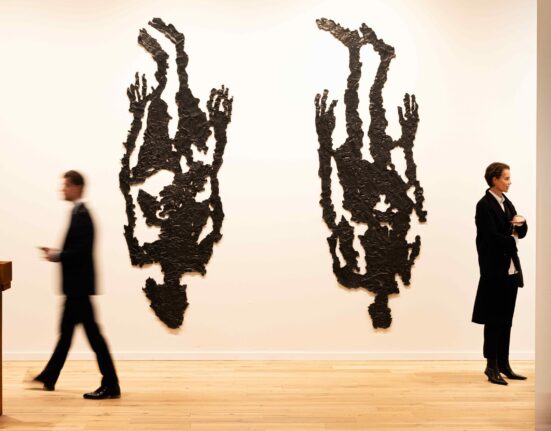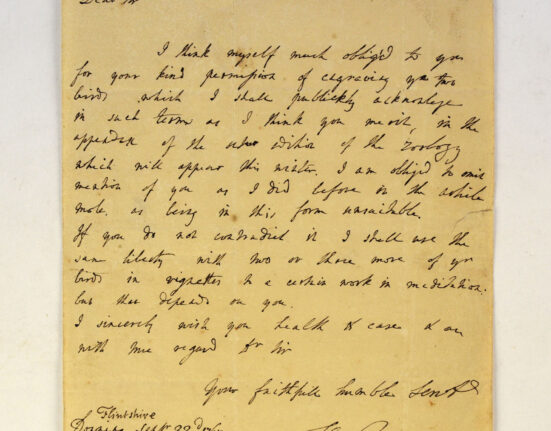Gianmarco Soresi is a comedian coming to Pittsburgh Improv on Dec. 3. The Pitt News sat down with Soresi for a virtual interview to talk about Pittsburgh, studying musical theater and his recent “Leaning In” tour stops in Europe.
This interview has been edited for length and clarity.
The Pitt News: You’re in Bridgeport today, right? How is fabulous Connecticut?
Gianmarco Soresi: I am. You’re the only one who knows. I’ve been all over Connecticut, and this is definitely one of the less interesting places, and that says a lot for Connecticut. So it’s fine. I have not been able to find a good smoothie place. Every time I ask someone for a breakfast recommendation, they go “Uh, Fairfield.” I go “Ah, well, I’m stuck here.”
TPN: Well, you have sunny Pittsburgh to look forward to! Your upcoming show isn’t your first time in Pittsburgh –– do any memories stick out about your previous experiences doing stand-up here?
Soresi: Honestly, it’s all been so quick –– I did one festival there, pre-COVID, and that was in a bar, I think it was called Hambone’s? Maybe? It was some kind of restaurant, and that was rough. And then I did — Steve Hofstetter set me up in a brewery, and that was earlier this year, actually. I’m excited to be in a real comedy club this time. I want to explore –– I’m never there long enough, but my favorite comedian Anthony Jeselnik is from Pittsburgh, so I always like to pretend I’m getting stronger by being there.
TPN: You just returned from a jaunt, a gallivant, through Europe for your tour. What were the key differences between European audiences and our stateside crowds?
Soresi: I would say that while they might not understand as many American political references, they had a better understanding of history in a way that let me make some jokes, frankly about the Holocaust, that they just understood the intricacies of more than the typical American. They were not quite as into raunchy humor, but they were very into dark humor. I feel like –– these are broad strokes that I’m painting –– that Europeans have a more honest understanding of their own countries in a way that really lets you talk shit about them.
I think I really enjoy asking the expats that were in the audience what differences did they notice, and then asking the locals what their opinions were of Americans. That was very cool. They make fun of us for the gun stuff very hard. It’s an easy way for an American to get a laugh there, like “Oh, it’s nice to be here and get a break from all those mass shootings.” They’re like “Ah! Yes! That’s you, America!”
TPN: Let’s talk about the name of your tour — “Leaning In.” Anyone who’s seen your stand-up knows exactly what that refers to. Could you tell us a little bit about that name’s origin?
Soresi: I happen to hit this pose on stage very often where I [have] one leg forward, bent knee. And usually it’s just so I can get closer to the audience. I think it’s because I am a very physical person, that when I would have a punchline sometimes I really just wanted to, even beyond my voice, extend my body into making a point … I think I always wanted to be a dancer. I truly did not have talent, and so I found a way where I could dance on stage under the guise of stand-up comedy. So I really like –– when I have a stage that’s bigger than an applebox –– moving and stretching and feeling lanky and free. The pose I hit the most though is just the lean, so I decided to make that the name of the tour.
TPN: Right, you come from a fine arts background.
Soresi: “Fine” is too nice a word –– I went to college for musical theater, which is a pretty useless degree, like having a Ph.D. in imagination. I used to be very passionate about musical theater. No one could’ve told me not to go to college for musical theater. But then the whips and scorns of the industry just beat singing out of me, then beat acting out of me, and I pivoted to stand-up. I fell in love with the autonomy of it all. Especially now, as I look at the troubling future with artificial intelligence and a newfound scarcity of acting work, I’m very happy to live in a career where I can take the reins myself.
TPN: Do you think AI will come for comedy?
Soresi: Writing jokes, absolutely. But live entertainment –– I think part of the energy of comedy is the same reason AI won’t take over sports. There’d be no fun in watching robots compete against each other. It’s about the imperfection of it all. So yes, do I think AI will write jokes? Do I think some comedians on stage will use material written by AIs? Sure. But ultimately, the thing that makes live entertainment exciting is to see a living, breathing human being who is flawed try to do something on stage. That’s the excitement of it.
I think people were scared that all those holograms of Michael Jackson going on tour were going to end the entertainment industry. Obviously not, because they didn’t. Because you want to see a real human being up there –– you want to know they were alive before the show, they’re alive after the show, that you could touch them, in theory. I feel really optimistic about, frankly, if AI starts pumping out every TV show under the sun, and creates a bunch of schlock, that live entertainment will just thrive because it’ll feel that much more unique in the landscape.
TPN: I’ve seen a lot of your crowd work on social media. What’s the key to your crowd work? How can you be funny on your feet?
Soresi: First of all, I fail very often. I just don’t post the failures. I think it’s like, when you do crowd work, you are now performing with someone else. Usually they are not a performer, so you have to kind of adapt to what they are giving you. If they answer something weird, you gotta follow them on that track. If they go off on a tangent that isn’t particularly funny, you have to find a way to curve it back to the unique thing.
It’s a dance, but a lot of it depends on the audience member … The greatest skill is just learning when to bail. Learning when to go, “There is nothing happening here.” Or, sticking with it until something funny emerges, which, every once in a while, you wait a while and then boom, it was all worth it. But it’s tough. It’s tough, and I do a fair amount of it, but I don’t consider myself an expert at it. I think it really is a challenging skill to always make it good.
TPN: Like many others, I discovered you through social media clips. Platforms like Instagram and TikTok have become powerful outlets for stand-up comedians. How have they changed what it means to be an up-and-coming comic?
Soresi: I ultimately think it changes things for the worse in the sense that when I perform, it’s no longer just for the people in the room. Crowd work is a perfect example. There’s times when I could’ve probably ended a crowd work interaction sooner, but in my mind, I’m going “Ooh, I’ve been trying to get longer videos for YouTube, so I’m gonna keep pushing it, keep exploring.” Now, I don’t think that I’d ever sacrifice a show for the clip, but it’s in my head –– there is a thing that is thinking of the outside camera, and it’s cool in the sense where I can capture the moment, capture a topical joke, and share it beyond the audience in the room.
On the other hand, you could say that because of social media and having to release more material, that I mix up my act more than I would’ve otherwise, so you get more, fresher perspectives. But ultimately I think most comedians would admit it hurts the art form, or it makes it harder to do well, because you have to be functioning on two cylinders.
TPN: Well, thank you so much for sitting down to talk with me. Enjoy the rest of your experience in Connecticut.
Soresi: Fantastic. Thanks a lot, man. See you around.







